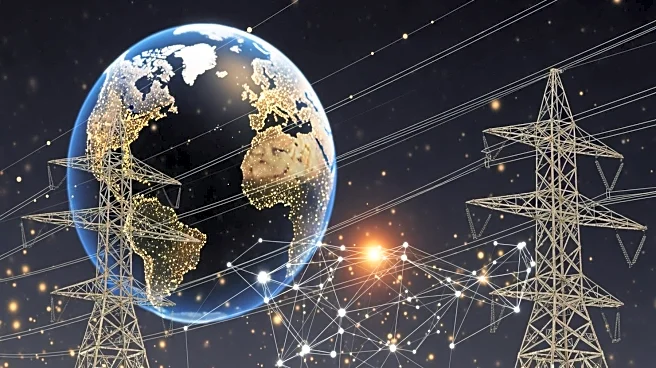What's Happening?
At the Singapore International Energy Week (SIEW) 2025, Philippine Energy Secretary Sharon S. Garin outlined the country's strategic vision for energy resilience and integration within the ASEAN region.
Garin emphasized the Philippines' commitment to renewable energy and its role in the Enhanced ASEAN Power Grid (APG), a project aimed at improving energy security and sustainability across Southeast Asia. The Philippines is exploring a bilateral power interconnection with Malaysia, marking a significant step towards regional energy integration. This initiative aligns with the Philippines' upcoming ASEAN Chairmanship in 2026, where it plans to lead efforts in regional energy security and sustainability.
Why It's Important?
The Philippines' proactive stance on energy integration and renewable energy investment is crucial for the region's transition to sustainable energy sources. By positioning itself as a leader in climate adaptation and energy resilience, the Philippines is setting a precedent for other ASEAN nations. The potential interconnection with Malaysia could enhance energy security and grid stability, benefiting both the Philippines and the broader ASEAN community. This move also supports the region's decarbonization goals and could attract significant green investments, further boosting the Philippines' economy and its renewable energy sector.
What's Next?
As the Philippines prepares for its ASEAN Chairmanship in 2026, it is expected to prioritize regional energy integration and the acceleration of renewable energy deployment. The country will likely focus on harmonizing technical standards and market mechanisms to facilitate seamless cross-border energy cooperation. Additionally, the Philippines' engagement in nuclear energy programs and carbon credit policy development could play a significant role in shaping ASEAN's collective climate strategy. These initiatives are poised to drive the region towards a more sustainable and interconnected energy future.
Beyond the Headlines
The Philippines' approach to energy security, particularly through the deployment of Mobile Energy Systems in disaster-prone areas, highlights a people-centered strategy that could serve as a model for other nations facing similar climate challenges. This focus on resilience and adaptation underscores the ethical and practical dimensions of energy policy in the face of climate change. The Philippines' leadership in this area could influence broader regional policies and encourage a shift towards more sustainable and equitable energy solutions.











